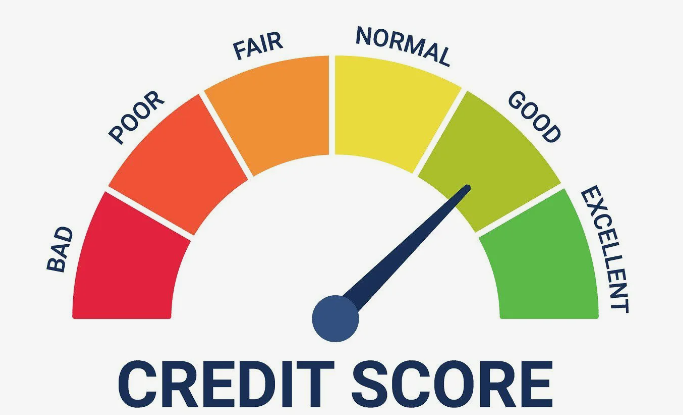What Is the Full Form of CIBIL and Why It Matters
- CIBIL India
- Nov 7, 2024
- 4 min read
Updated: Nov 29, 2024

Understanding credit and its intricacies is an essential part of managing personal finances. One of the most significant components in the realm of credit assessment in India is CIBIL. But what is the full form of CIBIL and why does it matter? This article delves deep into the essence of CIBIL, its importance, and how it affects your financial stature.
The Full Form of CIBIL
The full form of CIBIL is Credit Information Bureau (India) Limited. Established in 2000, CIBIL is India's premier credit information company, which collects and maintains records of an individual’s payments pertaining to loans and credit cards. These records are submitted to CIBIL by member banks and other institutions on a monthly basis, making "CIBIL full form" an essential concept for understanding credit scoring in India.
Importance of CIBIL
Understanding the full form of CIBIL is the first step, but grasping its significance is crucial for managing your credit health:
1. Creditworthiness Evaluation
CIBIL plays a vital role in determining an individual's creditworthiness. When individuals apply for loans or credit cards, lenders refer to CIBIL for their credit history. CIBIL provides a score based on the individual's credit behavior, which is pivotal in the approval process.
2. CIBIL Score
Your CIBIL score is a three-digit number ranging from 300 to 900, representing your creditworthiness. Higher scores reflect better credit behavior and lower credit risk. Generally, a score above 750 is considered good and increases your chances of loan approval.
3. Loan Approvals
Lenders primarily use the CIBIL score and report to assess loan eligibility. The higher your CIBIL score, the more likely you are to secure a loan at favorable terms. A low CIBIL score can lead to loan rejection or approval at higher interest rates.
4. Interest Rates
A good CIBIL score not only ensures loan approval but also fetches loans at lower interest rates. Financial institutions consider individuals with high scores as low-risk borrowers, thus offering them favorable terms and conditions.
5. Employment Opportunities
Some employers, especially in the finance sector, check the credit reports of potential employees as part of their background verification process. A good CIBIL score may thus enhance your job prospects.
6. Credit Card Approvals
Credit card issuers rely heavily on CIBIL scores to determine approval. High CIBIL scores can also make you eligible for premium credit cards with better benefits and higher limits.
Factors Affecting CIBIL Score
Several factors influence the CIBIL score:
1. Payment History
Consistently making timely payments on loans and credit cards boosts your score, whereas missed or delayed payments can significantly lower it.
2. Credit Utilization Ratio
This is the ratio of your credit card balance to the credit limit. Maintaining a low credit utilization ratio (ideally below 30%) positively impacts your CIBIL score.
3. Length of Credit History
A longer credit history provides more information about your financial behavior, aiding in a more accurate score. Therefore, maintaining old credit accounts can be beneficial.
4. Credit Mix
Having a healthy mix of secured (like home loans) and unsecured loans (like credit cards) is favorable since it shows your ability to manage different types of credit.
5. Number of Hard Inquiries
Applying for numerous loans or credit cards within a short span leads to multiple hard inquiries on your report, which can negatively impact your CIBIL score.
How to Improve Your CIBIL Score
Improving your CIBIL score requires consistent and strategic financial discipline:
1. Timely Payments
Ensure that all your loan EMIs and credit card bills are paid on time. Setting up reminders or auto-debit instructions can help maintain timely payments.
2. Optimal Credit Utilization
Keep your credit utilization ratio low. If possible, pay off credit card balances in full each month.
3. Monitor Your Credit Report
Regularly check your credit report for any discrepancies or fraudulent activities. Rectifying errors quickly can prevent unnecessary damage to your score.
4. Maintain a Healthy Credit Mix
Try to have a balanced mix of credit. Don’t rely solely on unsecured loans; instead, balance them with secured loans to enhance your credit profile.
5. Limit Credit Applications
Be judicious and sparing in applying for new credit. Multiple applications can result in numerous hard inquiries, adversely affecting your score.
How to Download Bajaj Finserv App to Check Your CIBIL Score
Download Bajaj Finserv App to manage finances and check your CIBIL Score effortlessly. The app offers a user-friendly interface for instant access to your credit profile, loan management, and financial updates. Stay on top of your creditworthiness with seamless features and real-time CIBIL Score tracking—all in one convenient app!
Conclusion
Understanding the full form of CIBIL and the significance of the CIBIL score is fundamental for financial literacy and healthy credit management. CIBIL, or the Credit Information Bureau (India) Limited, plays a crucial role not just in credit approvals, but in determining the financial stability and opportunities available to individuals. For anyone looking to manage their finances effectively, maintaining a healthy CIBIL score should be a priority. It’s a reflection of your creditworthiness and can significantly impact various aspects of your financial life, from securing loans to employment opportunities. Therefore, being informed and proactive about your CIBIL score can pave the way for better financial health and freedom.


Comments